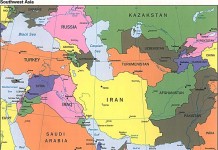As the situation in Libya worsen, the discussion on establishing a no-fly zone there is also intensifying. The positions being taken by various global players on this issue present clues on the shape of future balance of power in Middle East. Furthermore, as the situation in other Arab countries, such as Yemen and Bahrain, remain murky; the no-fly zone in Libya could provide a precedent. This analysis examines the positions of different players on the debate of no-fly zone in Libya.
Following list presents the positions of key international players, on imposing a no-fly zone over Libya.
Analysis
United States
Officially, US has consistently maintained that all options, including the military, remain on the table. However, with in the US government, a variation exists on the feasibility of military intervention. For example, the Defense Department has highlighted the difficulties related to the no-fly zone. Consider the following statement from US Secretary of Defense Robert Gates:
“There is a lot of, frankly, loose talk about some of these military options. Let’s just call a spade a spade.
“A no-fly zone begins with an attack on Libya to destroy the air defenses. That’s the way you do a no-fly zone.
“Then you can fly planes around the country and not worry about our guys being shot down. That is the way it starts.”
However, President Obama has overtime developed a much more firmer approach:
“We’ve got NATO as we speak consulting in Brussels around a wide range of potential options, including potential military options, in response to the violence that continues to take place inside of Libya,” he said today.
United Kingdom
UK has strongly supported establishing the no fly-zone. Prime Minister Cameron recently stated:
“And we do not in any way rule out the use of military assets, we must not tolerate this regime using military force against its own people.
“In that context I have asked the Ministry of Defence and the Chief of the Defence Staff to work with our allies on plans for a military no-fly zone.”
China
China’s ambassador to the UN Li Baodong laid out three guiding principles in explaining its position:
The need for diplomacy, respecting the territorial integrity of Libya, and respecting the opinions of Arab and African countries.
Russia
Russia has instead emphasized the use of sanctions approved by the UN Security Council on February 26, to influence the behavior of Libyan leader.
“A ban on the national air force or civil aviation to fly over their own territory is still a serious interference into the domestic affairs of another country, and at any rate it requires a resolution of the UN Security Council,” Russian NATO ambassador Dmitri Rogozin told the Interfax news agency.
France
France and UK are cooperating to present a resolution in the UN Security Council to establish a no-fly zone in Libya. According French Foreign Minister Alain Juppe, his country is working with the Foreign Secretary William Hague of UK, to propose measures at the European Union forum on Libya next Friday.
Turkey
Turkey’s position on the no-fly zone is best described by the following quote:
“Reporters have been asking me whether or not NATO should intervene in Libya. It is such nonsense. What does NATO have to do with Libya? NATO’s intervention in Libya is out of the question. We are against such a thing,” Prime Minister Recep Tayyip Erdoğan stated Monday while delivering a speech to the Turkish-German Economy Congress in Hanover, Germany.
Additionally, Turkish foreign minister has stated a UN resolution would be needed for NATO alliance to military intervene in Libya.
NATO
Media reports indicate that NATO naval forces are assembling in Malta. According to US ambassador to NATO, the organization has already started round the clock surveillance flights over Libya. However, NATO Secretary General Anders Fogh Rasmussen has given mixed signals, ranging from saying that the organization is preparing contingency plans, to NATO is not imminently thinking of military intervention in Libya, without a UNSC resolution.
Arab League
According to reports coming out of France, no-fly zone received the support of Arab League after a meeting between its Foreign Minister Alain Juppe and secretary general Amr Musa in Cairo. The Gulf countries have also called on UNSC to protect civilians in Libya, and have supported the prospect of no-fly zone. Unconfirmed reports suggest that Saudi Arabia has been asked to assist in arming the rebels in Libya.
India
India has spoken against the use of force and establishing a no-fly zone over Libya. Additionally, Foreign Secretary Nirupama Rao has emphasized the need for respecting the views of Arab League and African Union, including Libya’s neighbors.



